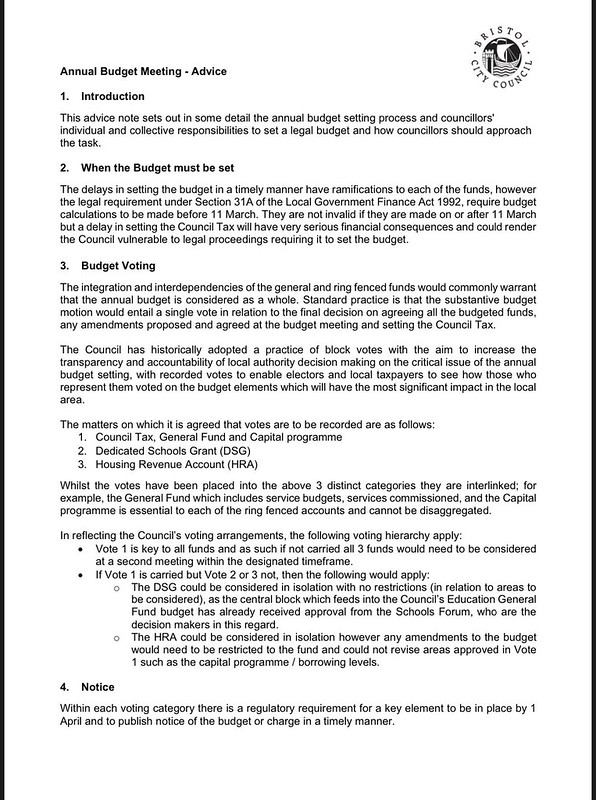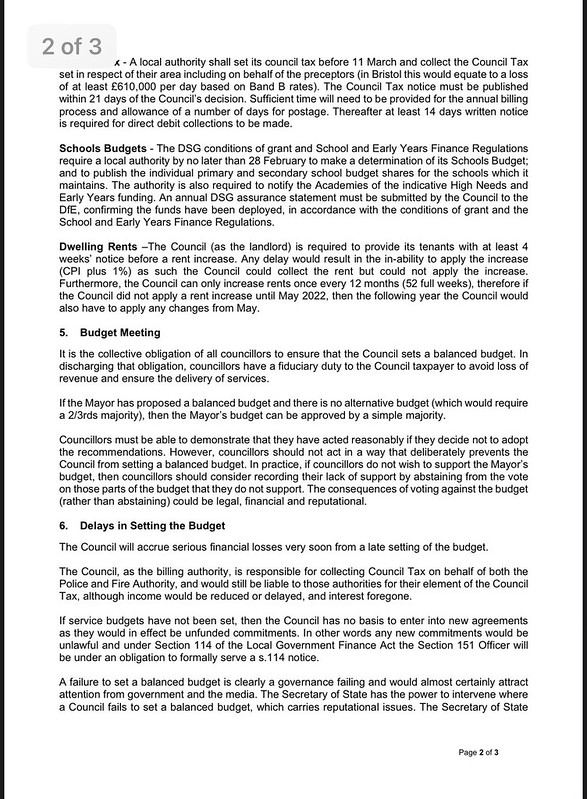With a vote by councillors due next week on whether to have a referendum on scrapping the elected mayor, Business West head honcho James Durie and friends have got scribbling fast:
FAO All Bristol City Councillors
Dear Councillor
I attach a letter to each of you from Bristol Chamber of Commerce & Initiative – Business West with reference to the motion to trigger a referendum on the Democratically Elected Mayoral model for the City of Bristol at Full Council Meeting on 7th December. This is a matter of significant interest and concern for us.
Regards
James
James Durie | Chief Executive – Bristol Chamber & West of England Initiative
Executive Director – Business West
Dear Councillor,
Strengthening Bristol’s Democracy
We are writing to you about the motion to trigger a referendum on the Democratically Elected Mayoral (DEM) model for the city of Bristol. This is a matter of significant interest and concern for us.
The DEM model – chosen by the people of Bristol in the 2012 referendum – has enabled all voters across the city to directly elect the leader of the city every four years. As the representatives of business in the West of England, and also as residents of Bristol, we saw the need in 2012 to change the governance model of the city and supported the creation of a directly elected mayor. We continue to support this now and wish to see it strengthened.
We are writing to each of you privately as our representatives in Bristol’s democracy to make clear our position. We will also be contributing to the debate at the council meeting and in public.
Background
We believe in a strong and inclusive economy for Bristol. In 2012, Business West Chamber and Initiative supported the ‘Elected Mayor for Bristol’ referendum “Yes” campaign as we believed that a directly elected mayor would improve decision making in the city, strengthen Bristol, and help deliver prosperity which is essential for jobs and services and the continued sustainable growth of the city.
Over the last 35 years we have had many strong partnerships with Bristol City Council (the regeneration of Harbourside and Broadmead are two). However, our long experience showed us that the system of local government in 2012 – being often short-term in outlook and delivery – was holding the city back. We believed then, and continue to believe now, that stable leadership, which brings the city together, is essential. The five changes of leadership in Bristol City Council we encountered in the seven years before the referendum made stability and consistency impossible for the long-term thinking and decision-making that cities need. It also made the case harder for investment to be made in the city whether by national government or private.
At present, businesses and employers are focussing on dealing with the impact of inflation, Brexit, and trying to recover from the pandemic with major skills and supply chain shortages in what remains a challenging, fast changing environment. And on top of these, there is the need for businesses to contribute to decarbonisation as part of meeting the climate crisis. Many of these challenges are long term and our work to meet these will be helped by strong and accountable leadership. Build a New Future for the DEM model
We are supporters of the Directly Elected Mayoral model but also want to see this strengthened. We want to see strong and effective system of local government which is best able to serve all our communities. We need to ensure that there is consistency of leadership over each four-year period so that critical issues of, for example, transport and land use planning can be agreed and delivered.
The research published in the Bristol Civic Leadership project argued that:
• The mayoral model delivers more visible leadership of the city.
• Direct election gives the individual substantial democratic legitimacy to lead and makes mayors more accountable.
• Successive mayors have been effective in developing a forward-looking vision for the city. • Four-year terms provide stable leadership.
We believe these points are critical in this debate. At the same time, we share the legitimate concerns that the role of councillors in decision making has been restricted and that the expansive remit of the mayor risks overloading one individual. There are other issues, too. Since Bristol adopted the DEM model, the city and its councillors have also supported – and become part of – the West of England Combined Authority. We believe that Bristol still needs strong leadership to enable it to operate as the central and largest component of a city region of over 1.1m people. As national government shifts more funding into regional authorities, we need to make sure that the leadership in the city is right to work in the context of WECA, too.
We want an open debate about all these points so that we can see democracy strengthened as well as retain the leadership needed. We believe that we can find the right way to balance leadership, accountability, and a renewed role for councillors, amongst others, to help the city move forward. We will be contributing to The Mayor at 10 projects. In the meantime, we feel that a referendum will be a distraction and urge that the motion be rejected in favour of a commitment by all to improve the DEM model.
Signed
Jaya Chakrabarti
President
Bristol Chamber of Commerce and Initiative
James Durie
Chief Executive
Bristol Chamber of Commerce and Initiative
Director – Business West
John Savage
Chairman
Bristol Chamber of Commerce and Initiative
****It’s been brought to our attention that the letter is inaccurate. It states:
‘The five changes of leadership in Bristol City Council we encountered in the seven years before the referendum made stability and consistency impossible for the long-term thinking and decision-making that cities need.’
But there were only two leaders of council in the 7 years before the 2012 referendum: Barbara Janke 2003-07 and 08-12 and Helen Holland 07-08!



